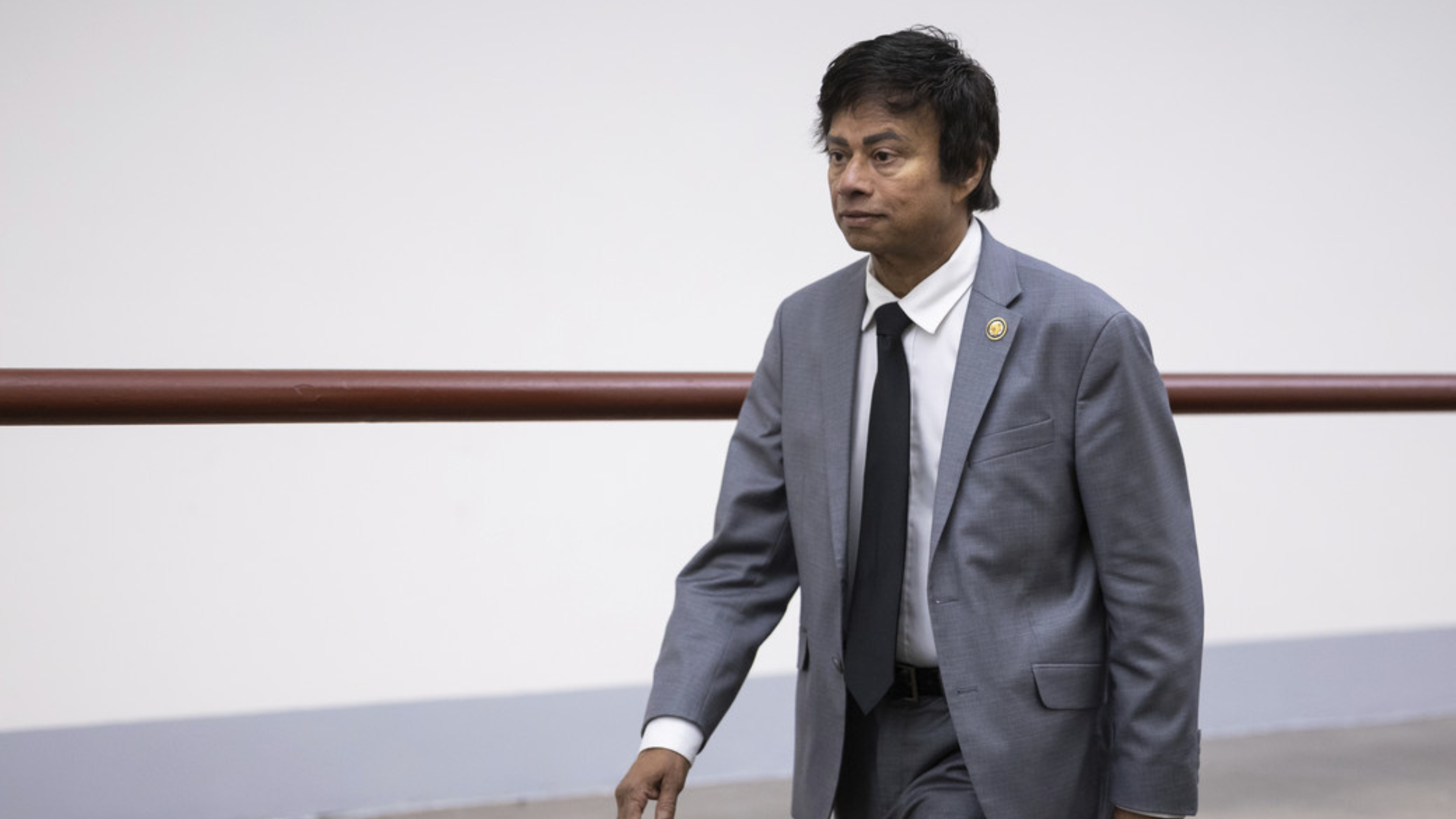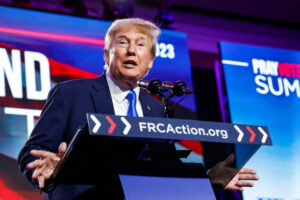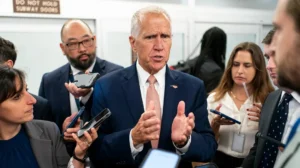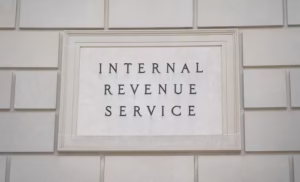Shri Thanedar backs down: why impeachment vote wasn’t forced amid growing backlash — the political landscape in America faces a significant moment as Representative Thanedar decided not to push a forced impeachment vote against [subject]. This decision has sent ripples throughout Congress and the public, sparking debates on political strategy, public opinion, and the future of governance in the United States.
What Happened? Understanding Thanedar’s Decision
Representative Thanedar initially signaled strong support for forcing an impeachment vote, aiming to hold accountable those he believed responsible for significant misconduct. However, as the political backlash intensified — both from within his own party and from opposition lawmakers — Thanedar reconsidered his position. The pressure highlighted the complexities and risks involved in forcing such a high-stakes vote, especially when political unity was lacking.
Many Democrats privately expressed concern that pushing forward with the impeachment vote at this moment could deepen divisions within the party and distract from other critical legislative priorities. Thanedar’s decision to step back was influenced by these internal dynamics and the realization that the timing was not favorable to achieve a successful outcome. This move reflects the often delicate balancing act politicians must perform between principle and pragmatism.
Ultimately, Thanedar’s choice to avoid forcing the vote demonstrated an understanding of the broader political context and potential consequences. By withdrawing the push, he aimed to preserve party cohesion and avoid a highly publicized defeat that could weaken the overall position of those seeking accountability. This decision underlines how political strategy often requires navigating both public pressure and behind-the-scenes negotiations.
Why Was Forcing an Impeachment Vote Controversial?
Forcing an impeachment vote is always a politically charged move, and in Thanedar’s case, it sparked considerable controversy because it risked deepening partisan divides at a time when unity was crucial. Many lawmakers feared that pushing the vote prematurely could alienate moderate Democrats and independents, potentially weakening the party’s standing in upcoming elections. Additionally, critics argued that the impeachment effort lacked sufficient evidence or bipartisan support to justify such a drastic step, making it appear more like a political tactic than a genuine pursuit of justice.
Moreover, forcing the vote could have further polarized an already divided Congress and distracted lawmakers from addressing urgent issues like the economy, healthcare, and national security. This controversy underscored the delicate balance politicians must strike between holding officials accountable and maintaining effective governance, especially amid heightened public scrutiny and media attention.
Impeachment Vote Pros and Cons
| Pros of Forcing Vote | Cons of Forcing Vote |
|---|---|
| Holds officials accountable | Risks political polarization |
| Demonstrates a firm stance on ethics | Could alienate moderate and swing voters |
| Energizes core party supporters | May lead to legislative gridlock |
What This Means for American Politics Moving Forward
Thanedar’s decision to back down from forcing an impeachment vote highlights the delicate balance lawmakers must maintain between pursuing accountability and preserving political stability. This episode underscores how impeachment, while a powerful constitutional tool, can also become a double-edged sword — potentially rallying supporters but also risking backlash from both within and outside one’s own party. Moving forward, politicians may be more cautious about using impeachment as a strategic weapon, especially when public opinion is divided.
The incident also reveals the increasing complexity of American politics in the current era, where social media, polarized news outlets, and grassroots activism heavily influence political decisions. Leaders now have to carefully navigate public sentiment and media narratives while trying to maintain legislative effectiveness. Thanedar’s choice not to force the vote may signal a shift toward more calculated political moves that prioritize long-term goals over immediate confrontations.
Finally, this event serves as a reminder that American democracy thrives on debate, compromise, and patience. While calls for accountability remain strong, the way such demands are pursued can significantly impact public trust and political cohesion. The political landscape is likely to see more nuanced approaches to controversial issues, balancing bold actions with the need for broader consensus to move the country forward.
How Voters Are Reacting Across the USA
The reaction from voters across the United States to Thanedar’s decision has been mixed, reflecting the country’s deep political divisions. Supporters of impeachment viewed the choice to back down as a missed opportunity to hold leaders accountable, expressing frustration on social media and in community discussions. For many of these voters, impeachment represents a crucial step toward justice and transparency in government, and they worry that stepping back could set a precedent of political avoidance.
On the other hand, a significant portion of voters expressed relief that the vote was not forced, fearing that it would further destabilize an already polarized political environment. These voters prioritize legislative progress on issues such as the economy, healthcare, and national security over high-profile political battles. Their stance highlights a growing fatigue among Americans toward partisan conflicts and a desire for unity and practical solutions.
Meanwhile, independent and swing voters, who often hold the balance of power in elections, appear to be closely watching how both parties handle such contentious issues. Many remain skeptical about impeachment efforts that seem driven more by political motives than clear evidence, emphasizing the need for transparency and bipartisan cooperation. This diverse public response will undoubtedly shape how politicians approach impeachment and accountability in the near future.
- 45% support impeachment efforts as a means of accountability
- 40% worry it deepens political unrest
- 15% undecided or unaware
Why This Story Matters to You
This story matters because decisions made in Washington, D.C., directly impact the everyday lives of Americans—from the economy to national security and public trust in government. When impeachment votes are debated, it’s not just political drama; it reflects the ongoing struggle to ensure leaders are held accountable and the democratic process is respected. Your voice as a voter matters in shaping how these political battles unfold, influencing the policies and priorities that affect your community.
Additionally, understanding the complexities behind impeachment debates helps you become a more informed citizen. It empowers you to engage in meaningful conversations, challenge misinformation, and participate confidently in elections. Whether you support or oppose impeachment efforts, knowing the reasons and consequences behind these decisions gives you greater clarity on the state of American democracy.
Finally, staying informed on stories like Thanedar’s decision helps protect the integrity of our political system. When voters pay attention, hold elected officials accountable, and demand transparency, it strengthens democracy for everyone. This story is a reminder that your awareness and involvement can shape the future of the nation.
Key Data and Insights: Understanding the Implications of Thanedar’s Impeachment Withdrawal
1. Public Opinion on Impeachment Efforts
Recent polling data reveals a divided public opinion on impeachment efforts. A FiveThirtyEight analysis indicates that 51% of Americans view impeachment as a poor use of Congress’s time, citing distractions from more pressing issues and doubts about the necessity of impeachment. Conversely, 45% consider it a good use of time, emphasizing Congress’s duty to investigate potential wrongdoing. Among Democrats, 25% express concerns about impeachment’s impact on legislative priorities, while 85% of Republicans share similar reservations.
2. Support for Impeachment Across Political Parties
Support for impeachment varies significantly across political affiliations. According to FiveThirtyEight, 81% of Democrats support impeachment, while only 18% of Republicans do. Independents are more divided, with 37% in favor and 43% opposed. This partisan divide underscores the challenges of achieving bipartisan consensus on impeachment matters.
3. Influence of News Outlets on Public Perception
The role of media in shaping public opinion on impeachment is noteworthy. Ipsos reports that viewers of MSNBC and CNN are more likely to believe that President Trump’s actions warrant impeachment, with 73% and 79% respectively expressing this view. In contrast, 54% of Fox News viewers feel less convinced of the necessity for impeachment, highlighting how media consumption can influence perceptions of political events.
4. Public Expectations for Impeachment
Americans generally support impeachment in cases of clear misconduct but prefer it to be used sparingly. Ipsos data shows that 70% of people support removing officials who have broken the law or abused their power. However, only 39% believe impeachment should be applied to all instances of bad behavior by elected officials, suggesting a preference for the selective application of this constitutional tool.
5. Impact of Thanedar’s Withdrawal on Democratic Strategy
Thanedar’s decision to withdraw the impeachment resolution has significant implications for Democratic strategy. His unilateral approach faced criticism from within his party, with some members labeling it a distraction from more pressing legislative priorities. The backlash underscores the importance of party unity and strategic alignment in pursuing high-stakes political actions like impeachment.
Final Thoughts
Thanedar’s decision not to force an impeachment vote reflects the nuanced realities of American politics today. It shows that while holding leaders accountable is important, timing, political strategy, and public sentiment play crucial roles in shaping those efforts. This moment reminds us that political decisions are rarely black and white—they involve balancing ideals with practical consequences.
As voters and citizens, it’s essential to stay informed about these developments and understand the broader context behind headlines. Rather than viewing such political moves as isolated events, recognizing their impact on governance, party dynamics, and national discourse helps us appreciate the complexity of democracy in action.
Ultimately, political accountability remains a cornerstone of American democracy, but how it is pursued can shape the nation’s future in profound ways. Keeping a close eye on these stories ensures you remain engaged and empowered to contribute meaningfully to the political process.
Subscribe to Trusted News Sites Like USnewsSphere.com for the Latest Updates on American Politics.
[USnewsSphere.com / po.]





